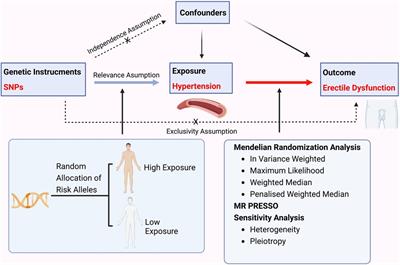Low Blood Pressure And Impotence due to reduced blood flow to the genital area. This can lead to difficulty achieving or maintaining an erection.
Low blood pressure, also known as hypotension, can affect the body’s ability to deliver adequate blood flow to the penis, which is essential for achieving and maintaining an erection. Impotence, also known as erectile dysfunction, can be a distressing condition for men.
It can impact not only their physical health but also their mental and emotional well-being. Understanding the relationship between low blood pressure and impotence is crucial for seeking appropriate treatment and managing both conditions effectively. We will explore the connection between low blood pressure and impotence, as well as discuss potential treatment options and lifestyle changes that may help alleviate these concerns.
The Link Between Low Blood Pressure And Impotence
Low blood pressure and impotence are two separate health issues that can have a significant impact on a person’s quality of life. However, recent research has shown a potential link between these two conditions, raising questions about the potential interplay between them. In this article, we will explore the connection between low blood pressure and impotence, delving into the factors contributing to this intriguing link.
Exploring The Connection
While low blood pressure and impotence may seem unrelated at first glance, emerging studies have suggested a potential correlation between the two. Understanding the underlying mechanisms behind this connection is crucial for devising effective treatment strategies and improving the overall well-being of individuals affected by these conditions.
Factors Contributing To The Link
Several factors may contribute to the link between low blood pressure and impotence. These include physiological changes, hormonal imbalances, and vascular dysfunction, all of which can have a profound impact on both blood pressure regulation and erectile function. By comprehensively examining these contributing factors, we can gain valuable insights into the complex relationship between low blood pressure and impotence.
low blood pressure’s effects on Sexual Health
Low blood pressure can have a significant impact on various aspects of health, including sexual health. It can affect sexual function, leading to issues such as impotence or erectile dysfunction. Understanding the
Low Blood Pressure’s Effects on Sexual Health is crucial for individuals experiencing these concerns.
Impact On Erectile Function
Low blood pressure can impede the flow of blood to the genital area, affecting erectile function. Reduced blood flow can lead to difficulty in achieving and maintaining an erection, resulting in impotence. This can cause distress and frustration for individuals and their partners, impacting overall well-being.
Relationship With Libido
Low blood pressure may also contribute to a decreased libido or sexual desire. The lack of adequate blood flow to the sexual organs can diminish sexual arousal and interest, affecting intimacy and satisfaction in relationships. Addressing low blood pressure is essential in addressing these concerns and restoring sexual health.
Managing Low Blood Pressure And Impotence
Managing low blood pressure and impotence requires a combination of lifestyle changes and medical interventions. By addressing both aspects, individuals can improve their overall health and quality of life.
Lifestyle Changes
Exercise Regularly: Engaging in physical activity can help improve blood circulation and overall cardiovascular health, which can positively impact both low blood pressure and impotence.
Healthy Diet: Consuming a balanced diet rich in fruits, vegetables, lean proteins, and whole grains can support heart health and improve blood pressure levels. Avoiding excessive alcohol consumption and maintaining a healthy weight are also essential.
Medical Interventions
Medication: In some cases, healthcare providers may prescribe medication to help regulate blood pressure or address underlying causes of impotence. It’s important to follow the prescribed treatment plan and attend regular check-ups.
Therapies: Various therapies such as vacuum constriction devices, penile implants, or counseling may be recommended to address impotence. Seeking guidance from a healthcare professional can help determine the most suitable option.

Credit: www.sciencedirect.com
Nutrition And Supplements For Improving Blood Pressure And Sexual Health
When it comes to managing low blood pressure and impotence, focusing on nutrition and supplements can play a crucial role in improving both blood pressure regulation and sexual health. Certain nutrients and supplements have been shown to have a positive impact on blood pressure levels as well as enhance sexual function.
Key Nutrients For Blood Pressure Regulation
Key nutrients play a vital role in regulating blood pressure and promoting overall cardiovascular health. Here are some essential nutrients that can help in maintaining healthy blood pressure levels:
- Vitamin D: Supports blood vessel function and helps in regulating blood pressure.
- Potassium: Helps in balancing sodium levels and supports healthy blood pressure.
- Magnesium: Promotes relaxation of blood vessels and aids in blood pressure regulation.
- Omega-3 fatty acids: Known for their anti-inflammatory properties and potential to lower blood pressure.
Supplements To Enhance Sexual Function
Supplements can also play a significant role in enhancing sexual function and addressing impotence. Here are some supplements that have been linked to improved sexual health:
- L-Arginine: Amino acid that can enhance blood flow and improve erectile function.
- Ginseng: Known for its potential to improve sexual performance and erectile function.
-
Zinc: Required for the synthesis of testosterone and general sexual well-being.
-
Maca root: Believed to enhance libido and improve sexual function.
Physical Activity And Its Role In Addressing Low Blood Pressure And Impotence
Physical activity plays a crucial role in managing both low blood pressure and impotence. Engaging in regular exercise not only helps in regulating blood pressure levels but also has a positive impact on erectile dysfunction.
Benefits Of Exercise For Blood Pressure
- Improves blood circulation
- Strengthens the heart muscle
- Helps maintain a healthy weight
- Reduces stress and anxiety levels
Impact On Erectile Dysfunction
- Enhances blood flow to the genital area
- Boosts testosterone levels
- Improves overall cardiovascular health
- Increases stamina and endurance

Credit: www.frontiersin.org
Stress Management Techniques For Improving Blood Pressure And Sexual Function
Managing stress can help improve both low blood pressure and impotence. Techniques such as exercise, meditation, and deep breathing can reduce stress and improve overall health, leading to better sexual function.
Stress management plays a crucial role in improving both blood pressure and sexual function. By implementing effective techniques, individuals can alleviate stress levels and enhance their overall well-being. Below are some key strategies that can aid in managing stress for better blood pressure and sexual function.
Mindfulness And Relaxation Practices
Practicing mindfulness can help reduce stress and anxiety. Mindful breathing exercises and meditation promote relaxation and calmness. Taking time to focus on the present moment can enhance overall mental and physical health.
Counseling And Therapy Options
Seeking counseling or therapy offers a supportive environment to address underlying stressors. Professional guidance can help individuals develop coping mechanisms and improve their emotional well-being. Therapy sessions are beneficial in managing stress-related issues effectively.
Conclusion And Future Considerations
Summary Of Key Points
Low blood pressure can contribute to impotence by affecting blood flow to the genitals.
Research indicates a possible link between low blood pressure and erectile dysfunction.
Research And Developments In The Field
Ongoing studies are exploring the relationship between low blood pressure and impotence.
New treatments may emerge to address both conditions simultaneously.

Credit: www.health.harvard.edu
Frequently Asked Questions
Why Does My Man Lose His Hard On?
There are various reasons for losing an erection, including stress, anxiety, alcohol, and health issues. It’s important to communicate and seek medical advice if the problem persists.
Should You Take Viagra If You Have Low Blood Pressure?
If you have low blood pressure, consult your doctor before taking Viagra. It can lower blood pressure further.
What Are The Common Symptoms Of Low Blood Pressure?
Low blood pressure symptoms may include dizziness, fatigue, fainting, and blurred vision. It can cause weakness and confusion.
How Does Low Blood Pressure Affect Sexual Health?
Low blood pressure can lead to impotence by reducing blood flow to the genital area, affecting sexual performance.
Conclusion
Low blood pressure can be a frustrating condition to deal with, especially when it impacts sexual function. However, by understanding the underlying causes and taking proactive steps to manage the condition, you can reduce the risk of impotence and other related symptoms.
From making dietary changes and staying hydrated to engaging in regular physical activity and practicing stress-reducing techniques, there are many ways to support your overall health and wellbeing. By taking a holistic approach to your health, you can enjoy a more fulfilling and satisfying life.


